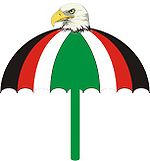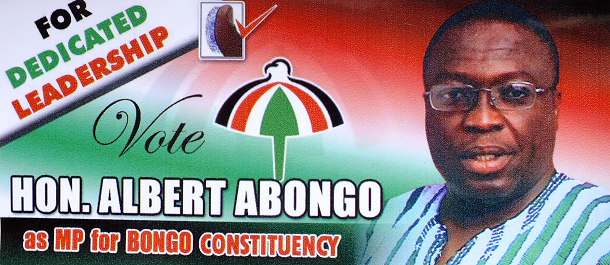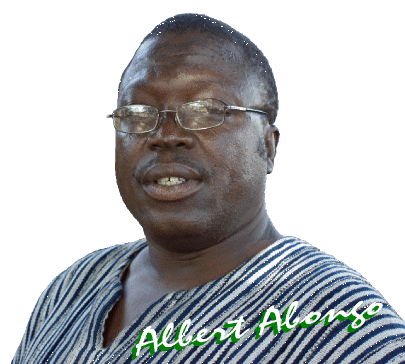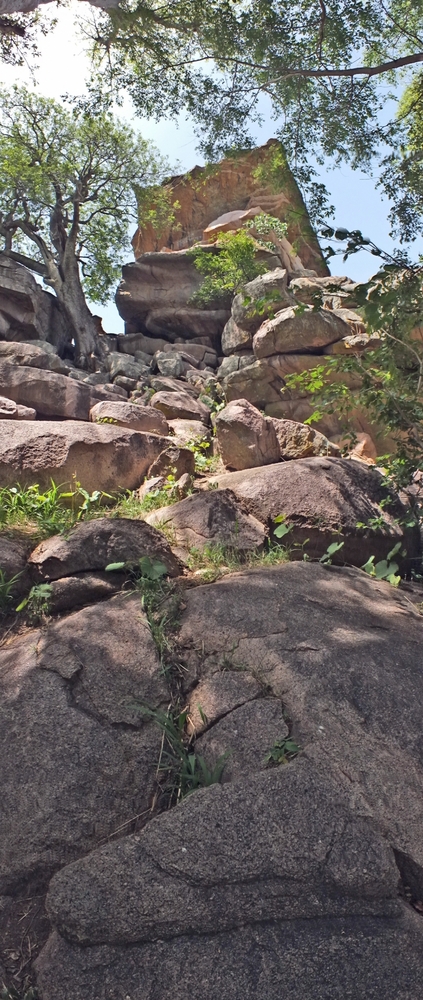Albert Abongo - Official Website
National
Democratic Congress (NDC) - Upper East Regional Minister and Member
of Parliament (MP) for Bongo Constituency, Upper East region of
Ghana

The NDC's party symbol is an umbrella with an eagle's head on top. Party colors are red, white, green, and black

Welcome! Akwaaba! Zaa-re! Willkommen!

Official - website of Hon. Albert Abongo, MP for Bongo Constituency
of the Republic of Ghana.
Offizielle - Webseite von Albert Abongo, Abgeordneter fuer den Bongo Kreis der Republik Ghana
Hon. Albert Abongo is also the Chaiman
of
The Forestry Commission of
Ghana
Prospects for the BONABOTO community - Hon.Albert Abongo
The Savannah Accelerated
Development Authority: prospects for the BONABOTO community SPEECH
BY Hon. Albert Abongo ON THE SAVANNAH ACCELERATED DEVELOPMENT
AUTHORITY:
PROSPECTS FOR THE BONABOTO
COMMUNITY. ON THE OCCASION OF THE
SECOND BONABOTO NORTH AMERICA 2009
CONGRESS
MR. Chairman
Distinguished executives of the
BONABOTO North America Chapter
Distinguished guest
Ladies and Gentlemen
Bridging the North-South divide in the distribution of resources
and
development has dominated key government policy circles since
independence. First were the austere measures of Nkrumah’s
CPP
administration to improve infrastructure - roads, basic social
services and
human capital development via the free policy on education. This
however
declined in the late 1960s owing to the abrupt end of the first
republican
government. Thus stagnated growth in various segments of the
North
attributed to bad policies, lack of political will, neglect and
weak economy
manifested until the coming of the Rawlings regime, which saw
significant
improvement in capital investment and the extension of electricity
to Northern
Ghana in 1990.
The connection of the North to the national grid was thought of as
a sustained
measure to bridging the prolonged disparity between the North and
the South.
However, this somewhat did not translate into increased
productivity and
development in full scale and the North-South gap continue to widen
in
proportion. For instance, within the last two decades, serious
external
investment to develop the natural resources of the North and
generate jobs
outside farming did not yield much. Similarly agriculture which was
once a
flourishing investment has declined owing largely to the removal of
subsidies
and over reliance on chemical fertilizers promoted in the 1970s.
This rather
unfortunate situation has engendered a range of serious
socio-economic
problems and the drifting of the productive youth to the urban
sprawls. This
youth engage in various harsh poor yielding occupations that have
the
tendency of exposing them to social and physical affliction.
Mr. Chairman, realizing the persistent impoverishment and the many
years of
social and economic exclusion of the Northern quarter of the
country, His
Excellency the President, Prof. John Evans Atta-Mills in
fulfillment of his
campaign promise announced in his maiden State of the Nation
Address, the
establishment of the Savannah Accelerated Development Authority
(SADA).
The SADA is seen as a more holistic development agency of
harnessing the
development of the three northern regions and districts in the
Brong Ahafo
and Volta Regions contiguous to the northern regions. It is the
hope of the NDC
government that when the SADA is successfully implemented, it would
not
only correct the protracted development asymmetry between the North
and
the South but also facilitate sustainable development in a more
balanced scale.
MR. Chairman, the government seeks to achieve eight mutually
reinforcing
objectives from the SADA;
1. Consolidate and expand the idea of transforming the economy
society
and culture of the three Northern Regions as elaborated in the
Northern
Development Initiative
2. Incorporate the development needs of the Savannah areas,
including
districts contiguous to the Northern Regions but located in
northern
Brong Ahafo and northern Volta
3. Address social as wells cultural dimensions of development,
while
focusing on broader economic development and wealth-creation,
especially for small-holder farmers
4. Bring about synergies in infrastructural development through
improved
roads, rail, water and air transport in a manner that integrate
the
Savannah economy with the southern forest economy.
5. Build a robust, Ghanaian private sector in the North, while
actively
promoting international private capital investment and
joint-venture
6. Invest in sustainable climate-change management, including
water
resources development, drainage and flood control
7. Strengthen the role of NGOs and civil society groups in
delivering
needed livelihood services to the poor and vulnerable, and
reinforcing
the role of non-state actors in promoting the rights and voice of
the
poorest society
8. Improve governance both at the decentralised levels and the role
of
traditional authorities including chiefs and women leaders
Mr. Chairman, SADA is an ambitious development package aimed at
reducing
poverty in northern Ghana to 20% of the population within the first
fifteen
years. Recently the Vice President, His Excellency John Mahama
kicked off
discussions with politicians, development planners and policy
makers on the
proposed policy thrush of SADA. The theme of the deliberations have
been
how to neatly and profitably roll over the current GH¢25 million
Northern
Development Fund (NDF) into the projected GH¢200 million SADA.
Indeed,
SADA is by far the biggest single Northern Ghana development
stimulus
package and His Excellency the President has promised to use
the
appropriation under the NDF and with the support of development
partners
begin urgent development interventions in the three northern
regions. The
government intend to expedite action in order to bring the needed
relief to
farmers and more especially people of the poorest wealth in the
north.
Mr. Chairman, distinguished ladies and gentlemen, as part of the
efforts
towards realising this dream, a forum on SADA was held in Tamale to
roll out
measures for a successful implementation of the policy areas.
Representatives
from the District Gender Offices, leaders of the Women’s
Departments of the
Ministry of Women and Children (MOWAC) in the three Northern
regions, key
NGO representatives from the regions as well as Regional Economic
Planning
Officers from the Regional Coordinating Councils of the Northern,
Upper East
and Upper West Regions all embraced the SADA as a renewed
government
commitment, towards bridging the long-standing developmental
imbalance
between the North and the South. Even before these
multi-stakeholder
dialogues, the Presidents has directed discussions to begin in
earnest with
private sector and civil society in the northern regions to speed
up
development that enhances incomes and provide employment for the
youth.
Mr. Chairman, the big question then is how can the BONABOTO
catchment
area meaningfully gain its fair share of the projected programmes
of SADA? In
answering this question, let me first state clearly that the policy
thrush of SADA
is to position the selected areas of the north as economic zones
that could
serve as alternate to some national projects and BONABOTO is
certainly one of
these economic zones.
Mr. Chairman, ladies and gentlemen, let me state that a more
recent
development towards realising the goals of the savannah
accelerated
development is the signing of a memorandum of understanding (MoU)
with
Sysgate Limited of Brazil to establish a sheanut processing plant
in the
northern part of the country. The plant, brainchild by the Vice
President John
Mahama, would allow for the export of sheabutter and help Ghana tap
into
the fast expanding global shea trade projected to gross 500 million
dollars per
annum within the next five years. The estimated market value for
Brazil alone
is 40 million dollars per annum. When completed, the plant will
process
between 40 to 100,000 tonnes of nuts yearly.
The government hopes that the establishment of the sheanut plant
will create
a range of crucial economic and employment opportunities for the
youth of
the three northern regions. We are optimistic that the sheanut
plant will serve
as a market driven force for the abundant sheanut in the North and
improve
on the livelihood of rural women.
Mr. Chairman, northern Ghana possesses huge agricultural resources
and in
this era of global climatic change, our neighbouring countries –
Burkina Faso
and Niger are going to rely on us for producing traditional crops
with linkages
to their secondary industries. In this direction, agriculture will
be given a major
attention in the savannah accelerated development. A comprehensive
action
plan will soon be instigated to rehabilitate the existing
irritation sites in the
three northern regions. We believe that revamping irritation
alongside farmer
education on commercial cash production is critical within the
broader ways of
promoting the agro-industry.
As part of the provisions of our social democratic budget, the
ministries of
finance and agriculture are tasked to develop new irrigation
facilities and
rehabilitate existing ones. A total of 41 dams and dugouts that
were breached
during the 2007 floods in the regions of the North would be
rehabilitated. The
rehabilitation of the Tono irrigation project would also be
completed by the
end of this year. Cash crops such as water melon, onion, mango and
others will
also be strongly recommended for cultivation to meet the expanded
markets
in neighbouring states.
The Minister of Finance has already hinted that guinea fowl farmers
in the
three northern regions will be supported with incubators to expand
on guinea
fowl rearing. Additionally, the government intends to supply
northern farmers
with breeds of sheep, goats, pigs and cattle from its breading
stations to
improve the performance of our existing local breeds of livestock.
The
government is also advancing plans to educate about 1,000 ruminant
farmers
on hay silage conservation as a measure of increasing the stock of
animal
rearing in the north to feed local industries such as the
Bolgatanga meat
factory that will be revamped under the SADA. Existing veterinary
laboratories
such as the one in Pong Tamale would also be enhanced to increase
the
manufacture of poultry and livestock vaccines locally.
Mr. Chairman, the government also intends to create more jobs for
the youth
in the north through agriculture. Already, the agriculture
departments in
Upper East is encouraging and supporting the youth to channel their
energy in
Agric. Funds have been secured which will be given out as credit to
the youth
to engage in various forms of agricultural activities. In addition
to this, a target
of 1,200 youth from the Northern, Upper East and Upper West will be
trained
in agri-business. About 7,000 youth will be supported with inputs
to cultivate
maize, rice or sorghum. An additional 4,000 others would be
supported with
modern inputs and irrigation facilities to undertake farming in the
dry season.
Mr. Chairman, access to potable drinking water continues to be a
major
challenge to many areas of the North. Therefore, as part of the
accelerated
development measures, my Ministry intends to quickly as possible
facilitate
the delivery of boreholes to all regions of the North. It is
expected that Upper
East will benefit from 245 boreholes, Upper West, 212 and Northern,
175
boreholes. Plans are also advanced to initiate small town pipe
schemes to
supplement the current pipe water schemes in the various townships.
Upper
East will benefit from 1 scheme whiles Northern region which has
suffered
perennial water problems will have 7 schemes.
A key component area of the savannah accelerated development is to
harness
the potential resources of the north and transform them to the
benefit of the
people. Therefore all existing tourism areas will be given a major
boost
through infrastructural development. The Tongo Mountains, the
Paga
crocodile pond, the Kusanaba Eco-tourism and others will be given a
new face
look under SADA.
Mr. Chairman, part of the planned policy areas is to take advantage
of the
sunshine in the north and establish solar energy as an alternative
to the
national grid. This solar energy is expected to improve the
intermittent power
supply especially in the regional capitals of the North. Regular
power supply
will improve upon the operation of local industries, mechanise
farming and
reduction in electricity tariffs. The tomato factory in Pwalugu and
the
Bolgatanga meat factory which will be brought back to operation are
expected
to take advantage of this solar power and expand on
productivity.
Mr Chairman, let me conclude by saying that cognisance need to be
taken of
the fact that an uncooperative approach to concretising the goals
of SADA
could erode the very positive and harmonising factors, and shutter
the current
sense of optimism. We have in a number of situations
encounter
circumstances where the very people of BONABOTO fail to release
land,
needed resources or even cooperate with government development
related
projects, thereby allowing such projects to cross over to other
areas.
BONABOTO need to be vigilant and open our minds to considering all
of the
explicit and flourishing opportunities of SADA and turn an old face
to
unconscious variables - cultural, social and political which have
contributed to
the failure of past Northern oriented policies.
The NDC government under Atta Mills is opened to everyone who is
positive
minded and wish to contribute his or her quota to moving Ghana
forward in
the right direction. You as people in the Diaspora are strongly
reminded of the
task ahead of us in developing the North. We are miles behind the
Southern
part of the country, but we belief the opportunities of this turn
of the 21st
century such as SADA will fill the void. It is a challenge for
everyone here to
network with our families back home and encourage them to assist
the
government with the needed resources when necessary to bring into
fruition
the action plans of SADA.
Thank you and God bless you
Albert Abongo







